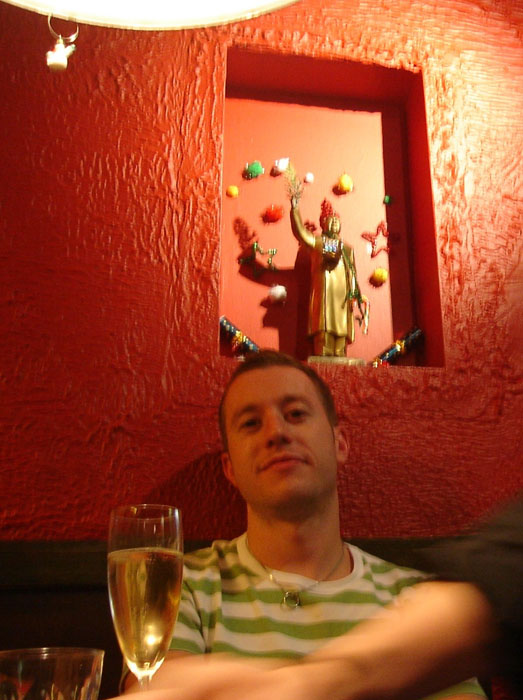state i'm in: a bit concerned.
tune: the brand new heavies 'i don't know why (i love you)' (dj spinna remix).
this is when i get a bit concerned...
on the austereo radio network today opposition leader kevin rudd defended his party's position on same-sex marriage:
on the institution of marriage itself, our view is between a man and woman and it's just been our traditional, continuing view.
when asked if, in the future, such a position may look as close-minded as racist beliefs of the past mr rudd replied that it is what he believes in. his replies were somewhat vague and trailed off, which leads me to ask to what degree are these his beliefs or just the party line. i have a vested interest in the man's personal assertions should he become prime minister, as they are likely to carry considerable ammunition into battle repelling the gains by the conservatives of this nation in john howard's so-called 'culture wars' - and i support marriage for same-sex partners. i personally support legislation allowing for fully recognised marriage for all human beings and their partners as i cannot understand why my contributions to society ought to be deemed any less worthy of recognition than those of my brother or my neighbour.in his closing remarks on radio today, mr rudd asserted that "legal discrimination against same sex couples should be removed". whether that only applies to the 50-something items of legislation described as discriminatory by the australian human rights and equal opportunity commision, or something further in line with mr rudd's personal views as declared in the past remains to be elaborated.
what placates me about mr rudd on this matter is the views he outlined in his essay for last october's edition of 'the monthly' magazine, 'faith in politics'. when addressing the modern forms of political engagement between church and state, one he explicitly deplores is "vote for me because i'm christian, and because i have a defined set of views on a narrowly defined set of questions concerning sexual morality." mr rudd responds to this as such:
regrettably, this model has an increasing number of supporters within the broader christian community. such supporters tend to read down, rather than read up, the ethical teachings of the new testament, producing a narrow tick-the-box approach to passing a so-called christian morals test. these tests tend to emphasise questions of sexuality and sexual behaviour. i see very little evidence that this pre-occupation with sexual morality is consistent with the spirit and content of the gospels. for example, there is no evidence of jesus of nazareth expressly preaching against homosexuality. in contrast, there is considerable evidence of the nazarene preaching against poverty and the indifference of the rich.
the central theme of his essay is that "a core, continuing principle shaping this engagement should be that christianity must always take the side of the marginalised, the vulnerable and the oppressed." mr rudd further elaborates his beliefs that the role of the (christian) church in its engagements with politics should be one of "speaking directly to the state: to give power to the powerless, voice to those who have none, and to point to the great silences in our national discourse where otherwise there are no natural advocates". mr rudd, as the fair and reasonable christian man you claim to be, i believe you have demands from LGBTs that you would need to address should you be elected.
right now, mr rudd, in spite of their toils, LGBT advocates are failing in their attempts to be heard - personally, i feel quite powerless, without voice, and without advocacy in the face of the hard-fought oppression of those you refer to as "above". i am, in this instance, what you would refer to as "below".


No comments:
Post a Comment